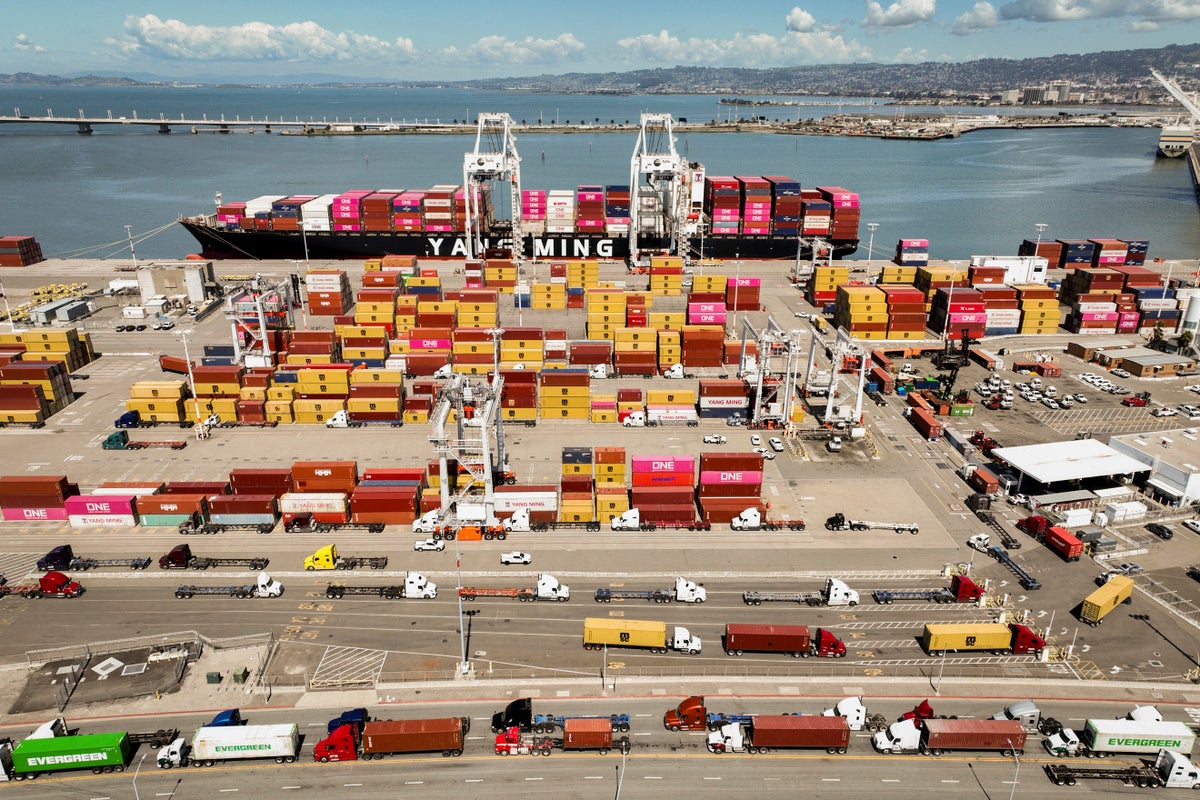President Donald Trump says the market slide due to his decision to impose tariffs was expected and the step was needed to heal the US economy, which he called a sick patient. Login or signup to continue reading At the White House, Trump told reporters the US economy would "boom", as he stood by his decision to impose a minimum 10 per cent tariff on imports, Trump also said he was open to tariff negotiations if other countries offered something "phenomenal." The penalties announced by Trump on Wednesday triggered a plunge in world markets and drew condemnation from other leaders reckoning with the end of a decades-long era of trade liberalisation.
The S&P 500, which tracks 500 of the biggest American firms, plunged 4.8 per cent - its worst day since COVID-19 crashed the economy in 2020. But there were conflicting messages from the White House about whether the tariffs were meant to be permanent or were a tactic to win concessions, with Trump saying they "give us great power to negotiate.

" The US tariffs amount to the highest trade barriers in more than a century: a 10 per cent baseline tariff on all imports and higher targeted duties on some of the country's biggest trading partners. Canadian Prime Minister Mark Carney said the United States had abandoned its historic role as a champion of international economic cooperation. "The global economy is fundamentally different today than it was yesterday," he said as he announced a limited set of countermeasures.
Elsewhere, China vowed retaliation for Trump's 54 per cent tariffs on imports from the world's No.2 economy, as did the European Union, which faces a 20 per cent duty. French President Emmanuel Macron called for European countries to suspend investment in the United States.
Other trading partners, including South Korea, Mexico and India, said they would hold off for now as they seek concessions. Washington's allies and rivals alike warned of a devastating blow to global trade. The tariffs "clearly represent a significant risk to the global outlook at a time of sluggish growth," IMF Managing Director Kristalina Georgieva said in a statement.
"It is important to avoid steps that could further harm the world economy. We appeal to the United States and its trading partners to work constructively to resolve trade tensions and reduce uncertainty." US Commerce Secretary Howard Lutnick and senior trade adviser Peter Navarro both told cable news programs the president would not back off, and the tariff increases were not a negotiation.
Trump then appeared to contradict them, telling reporters: "The tariffs give us great power to negotiate. Always have. I used it very well in the first administration, as you saw, but now we're taking it to a whole new level, because it's a worldwide situation, and it's very exciting to see.
" Stocks suffered a global meltdown, as analysts warned the tariffs could upend global supply chains and hurt corporate profits. The Dow fell nearly four per cent, its biggest one-day loss in percentage terms since June 2020 while the tech-heavy Nasdaq declined nearly six per cent, its worst day in percentage terms since the pandemic era of March 2020. American companies with significant overseas production took a hit.
Nike shares lost 14 per cent and Apple fell nine per cent. Imports to the United States now face an average duty of 22.5 per cent, up from 2.
5 per cent last year, according to Fitch Ratings. Trump says the "reciprocal" tariffs are a response to barriers put on US goods, though his list of targets includes uninhabited Antarctic islands and some of the world's poorest countries, which now face tariffs approaching 50 per cent. Administration officials said the tariffs would create manufacturing jobs at home and open up export markets abroad, though they cautioned it would take time to see results.
Economists say the tariffs could reignite inflation, raise the risk of a US recession and boost costs for the average US family by thousands of dollars - a potential liability for a president who campaigned on a promise to bring down the cost of living. with DPA and AP Australian Associated Press Daily Today's top stories curated by our news team. Also includes evening update.
Weekdays Grab a quick bite of today's latest news from around the region and the nation. Weekdays Catch up on the news of the day and unwind with great reading for your evening. Weekly Get the editor's insights: what's happening & why it matters.
Weekly Going out or staying in? Find out what's on. Weekly Love footy? We've got all the action covered. Weekly The latest news, results & expert analysis.
Weekly Follow the Newcastle Knights in the NRL? Don't miss your weekly Knights update. Weekly Get the latest property and development news here. Weekly Every Saturday and Tuesday, explore destinations deals, tips & travel writing to transport you around the globe.
Weekdays Sharp. Close to the ground. Digging deep.
Your weekday morning newsletter on national affairs, politics and more. Twice weekly Your essential national news digest: all the big issues on Wednesday and great reading every Saturday. Twice weekly Get real, Australia! Let the ACM network's editors and journalists bring you news and views from all over.
Weekly Get news, reviews and expert insights every Thursday from CarExpert, ACM's exclusive motoring partner. As it happens Be the first to know when news breaks. Daily Your digital replica of Today's Paper.
Ready to read from 5am! Daily Test your skills with interactive crosswords, sudoku & trivia. Fresh daily!.
Politics

Market response to tariffs expected, US to boom: Trump

US trading partners threatened to ratchet up a trade war as President Donald Trump's sweeping tariffs ignited fears of steep price hikes.















